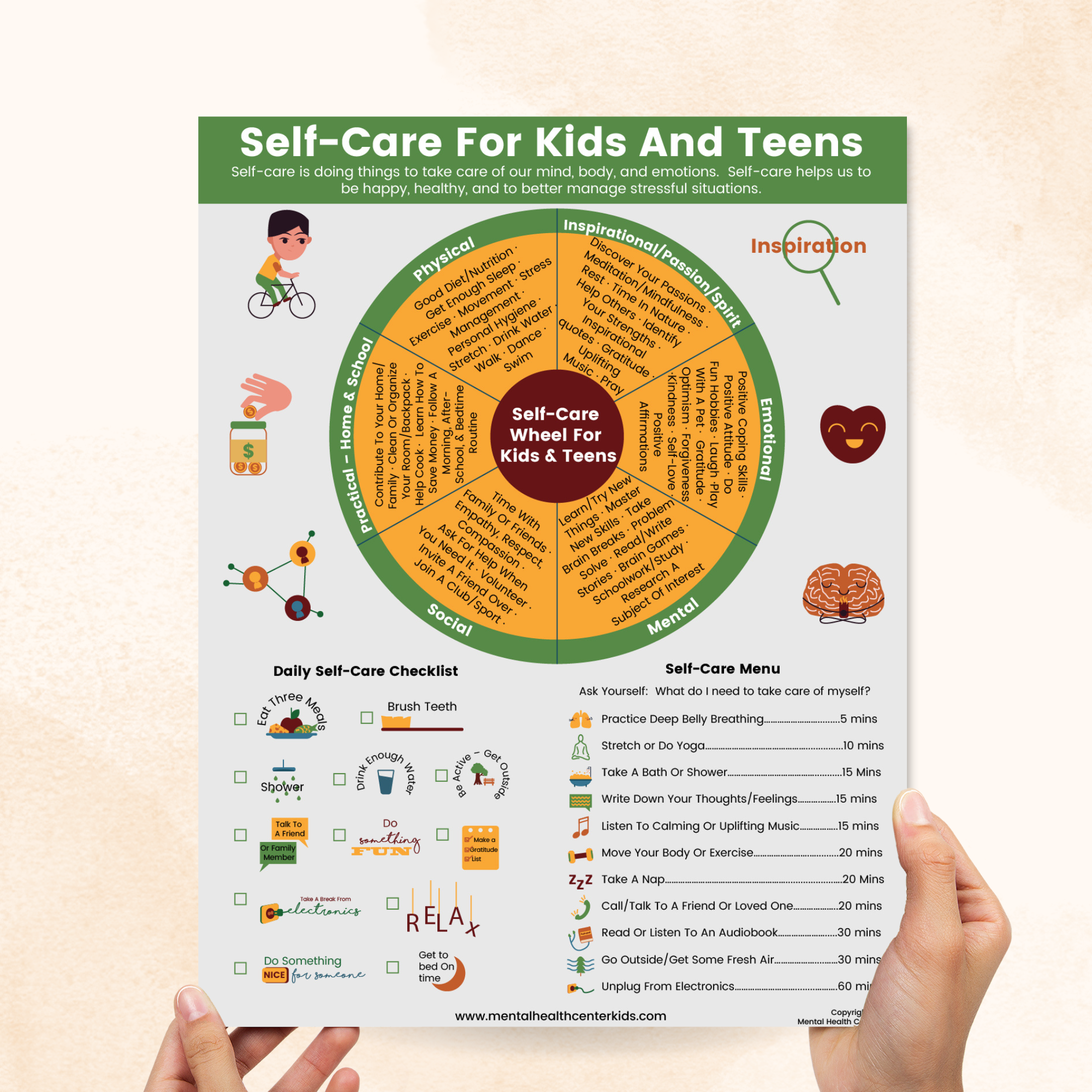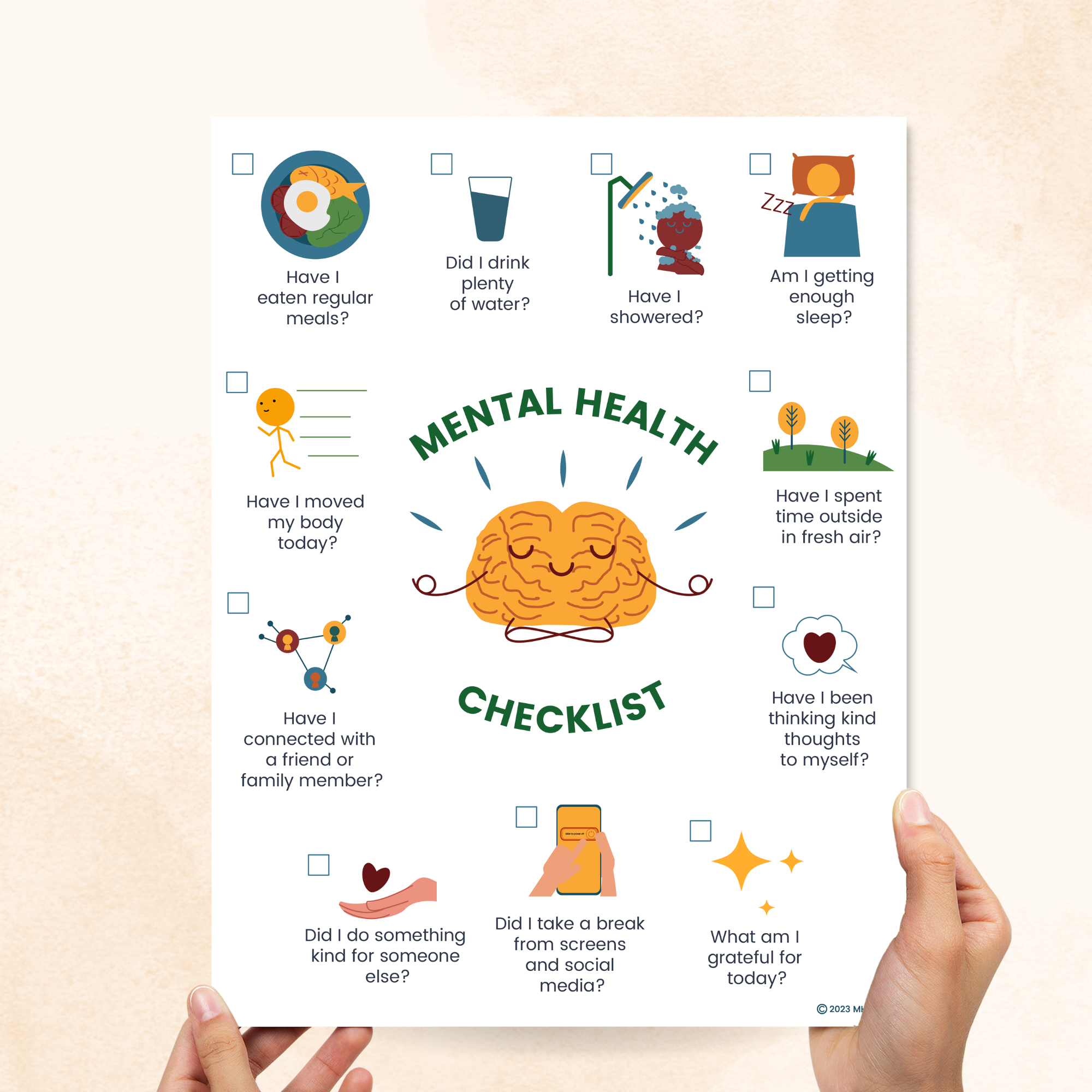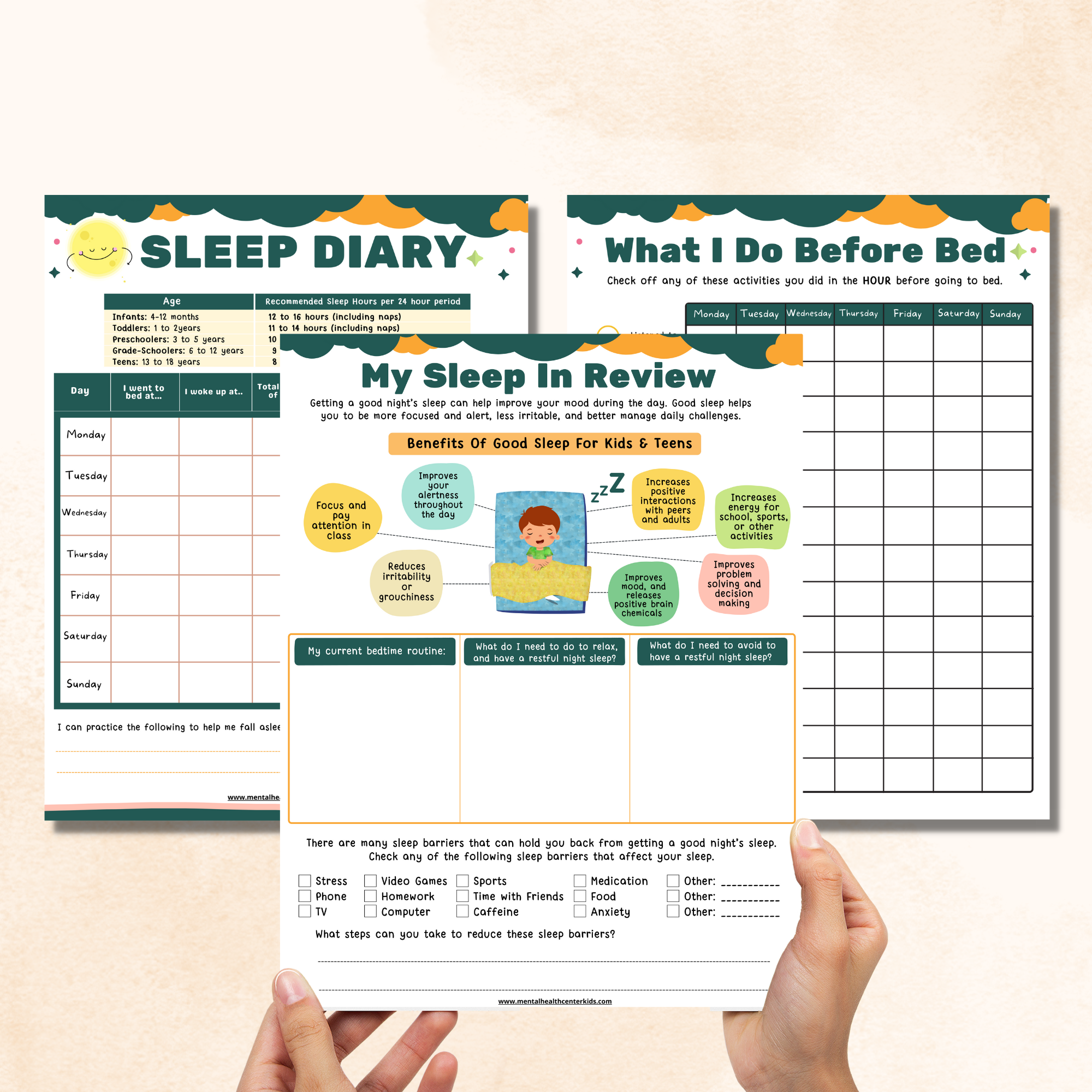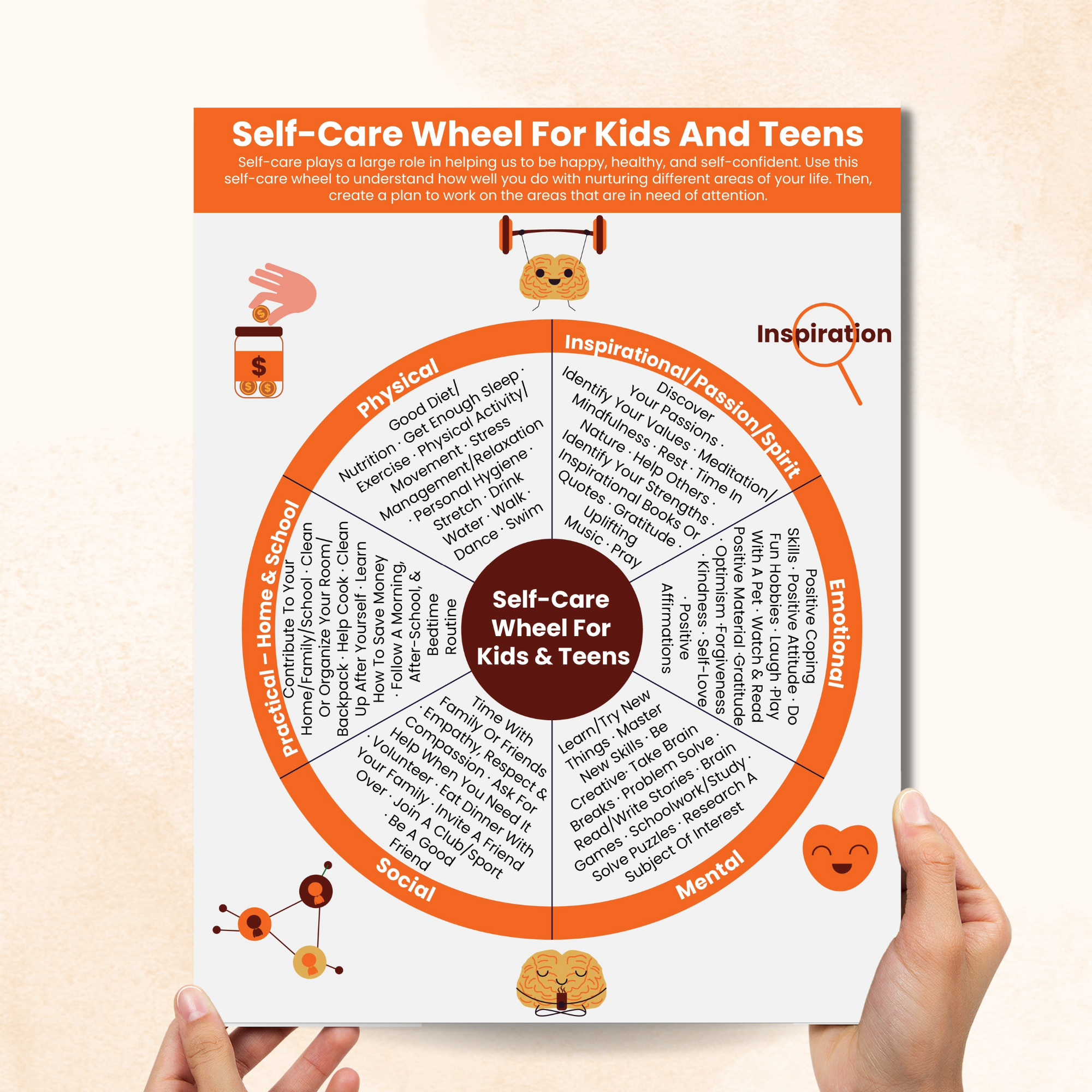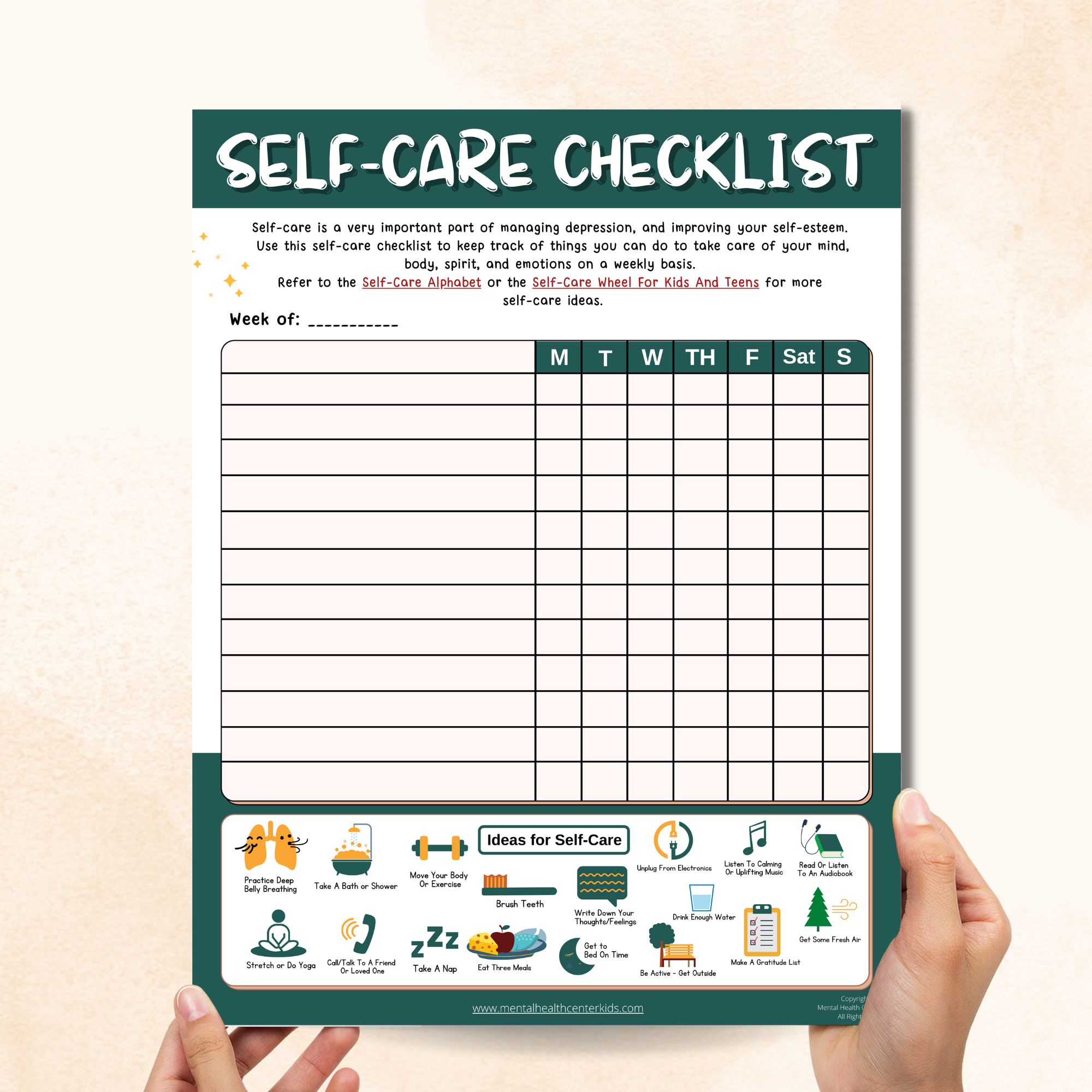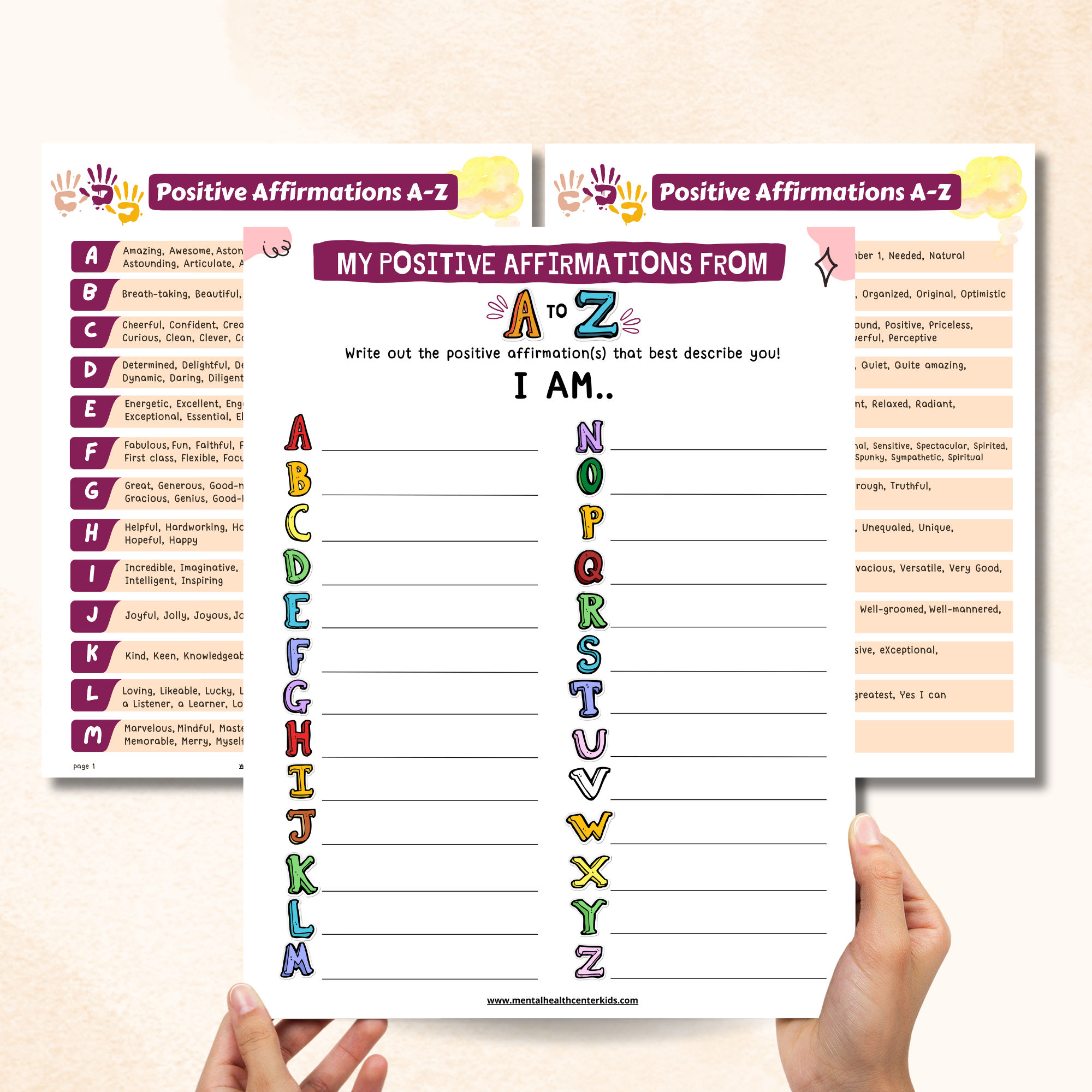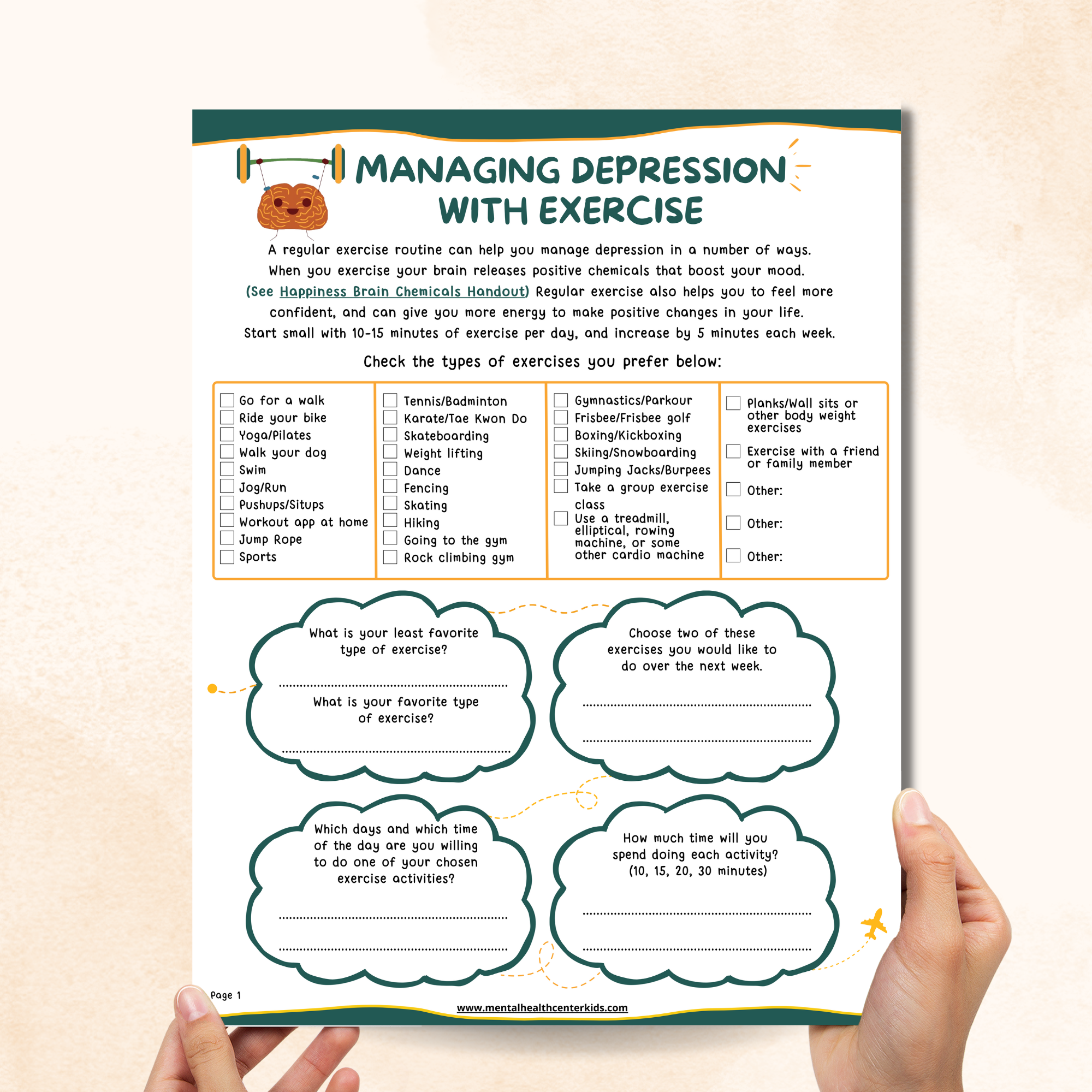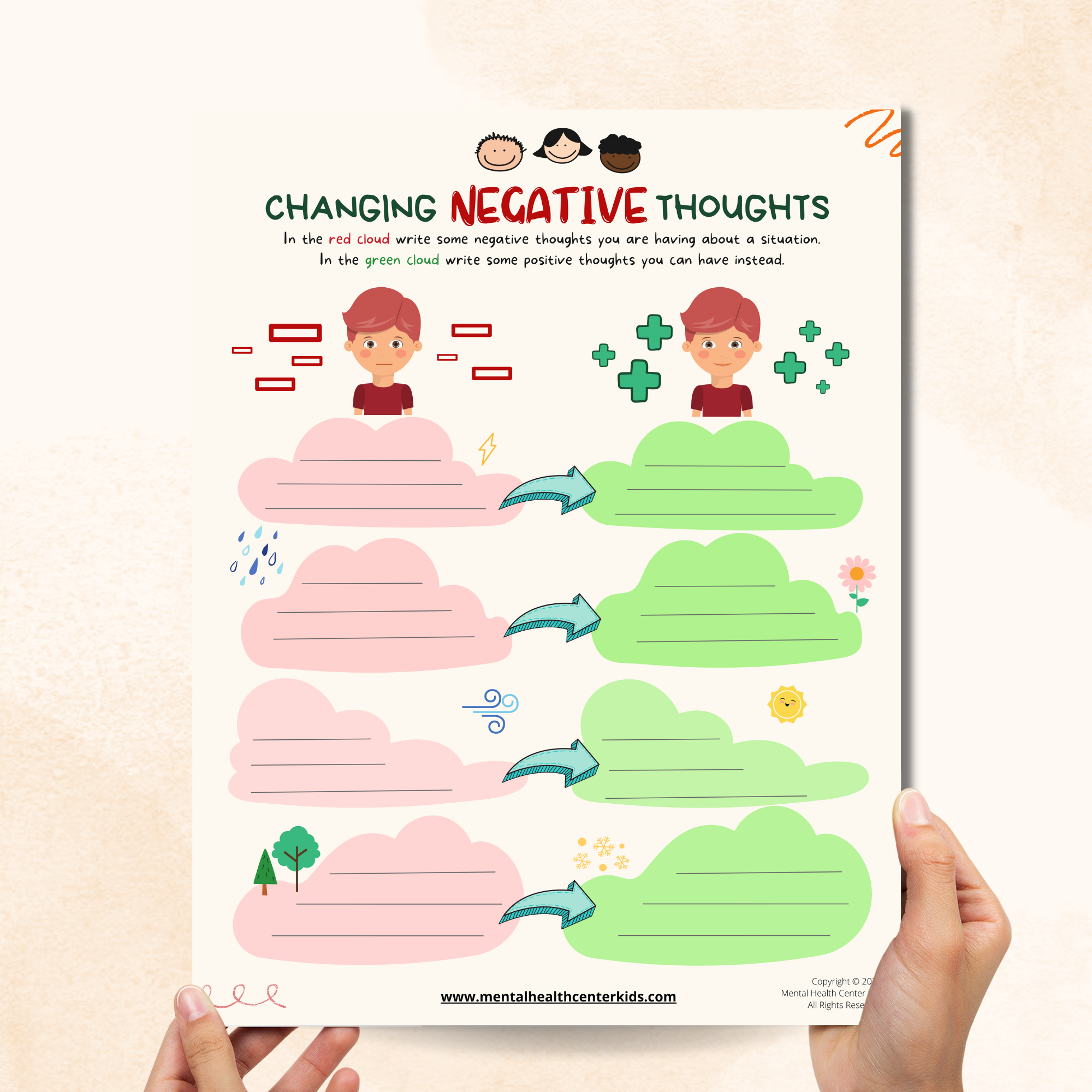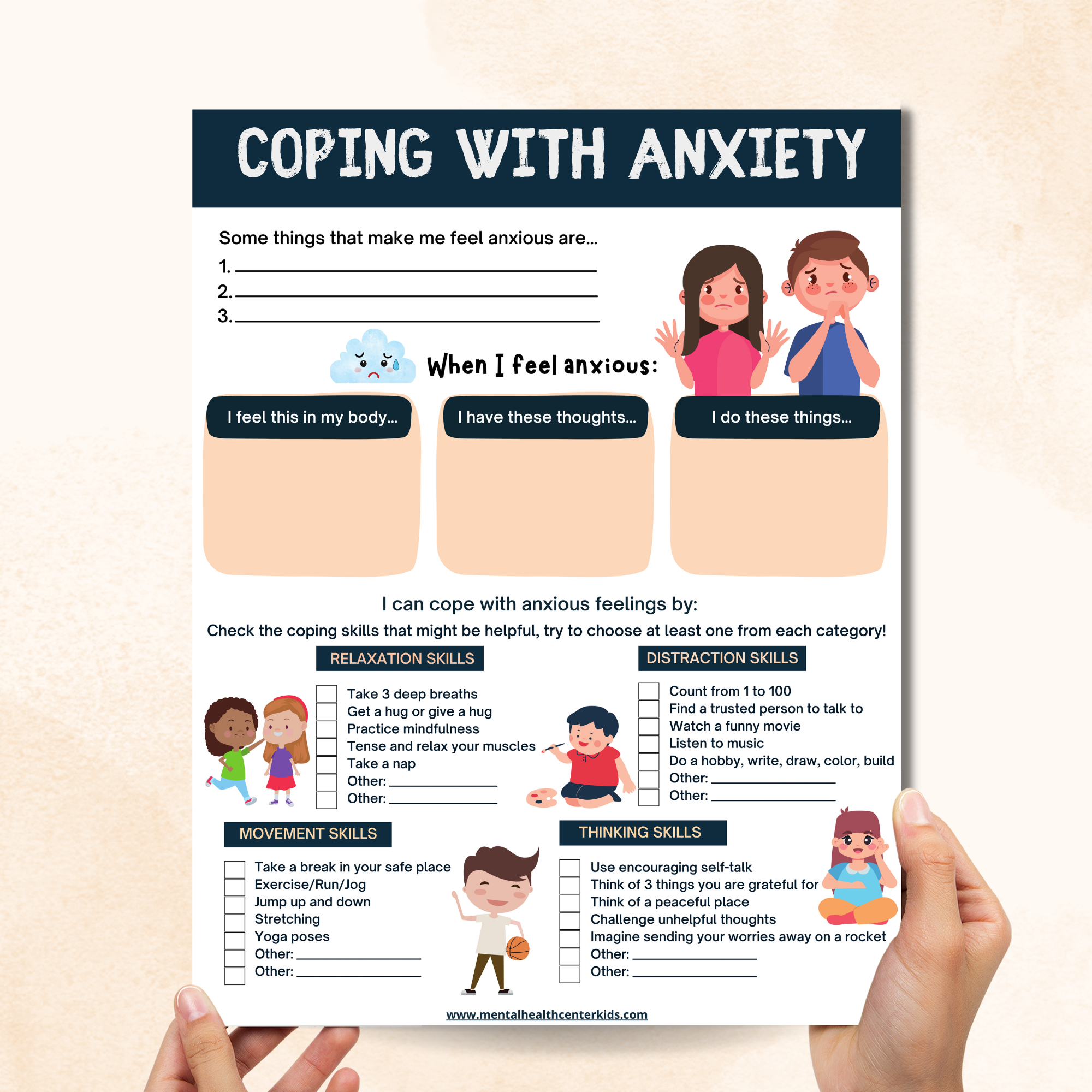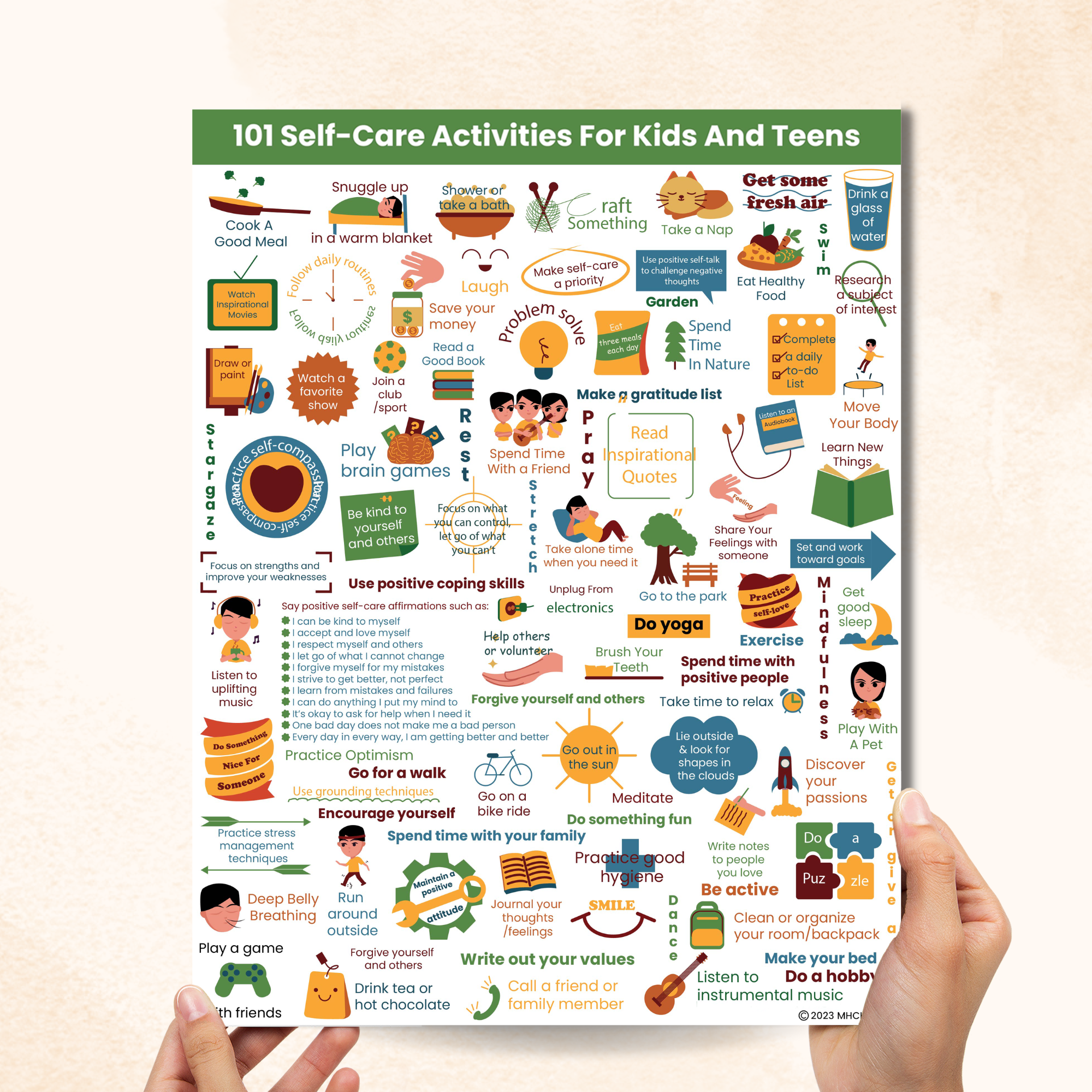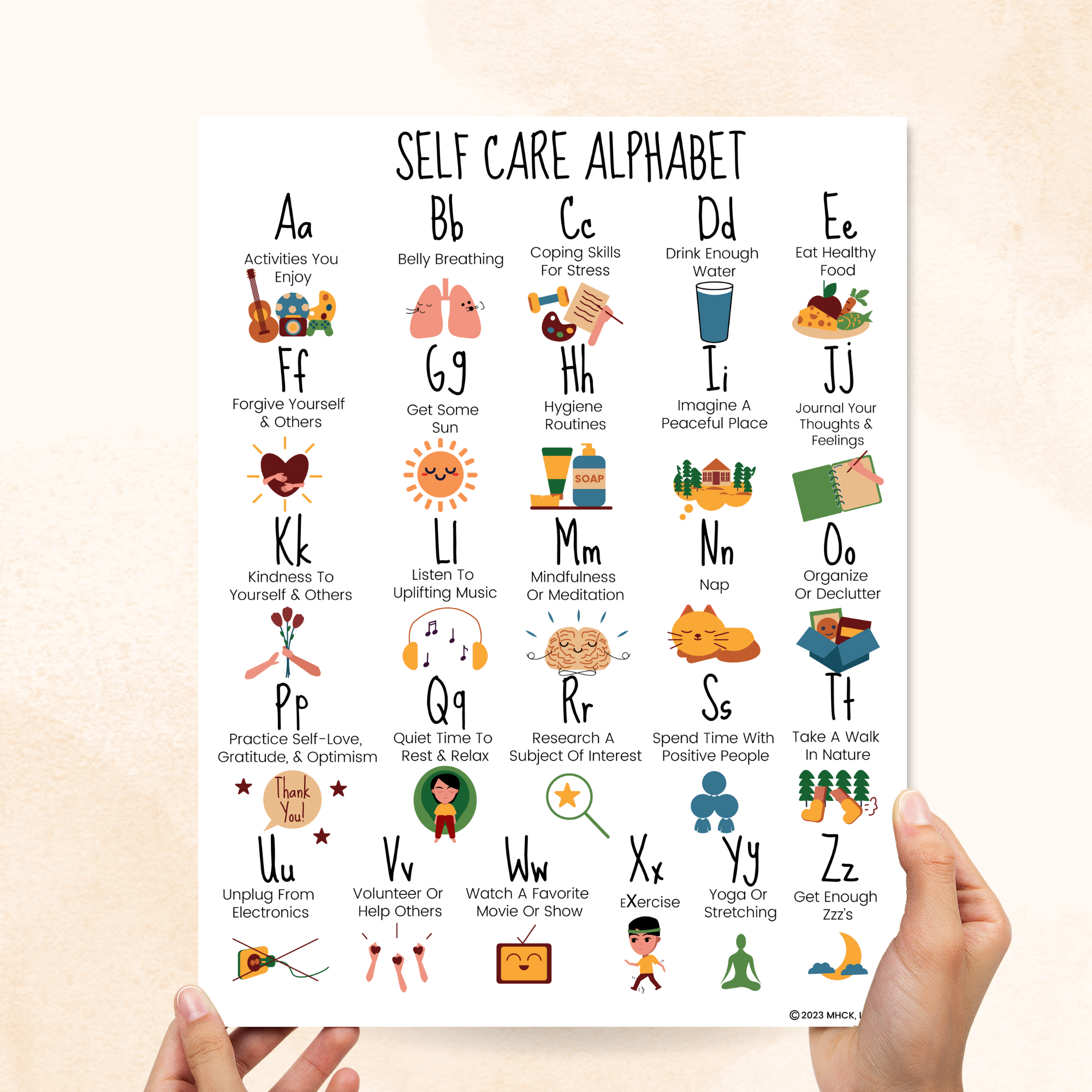|
Key Takeaways:
- Self-care worksheets allow adolescents to develop better coping mechanisms and take care of their bodies.
- The benefits of using self-care worksheets include enhanced self-reliance, reduced anxiety and depression, lowered risk of illness, and increased productivity.
- Some self-care worksheets include mental health checklists, changing negative thoughts to positive thoughts, and managing depression with exercise.
|
Self-care is as important to children and teenagers as it is to parents—and it doesn’t mean being selfish. Self-care worksheets provide a quick and easy way to decompress and recuperate after a stressful day.
With these printable self-care worksheets for kids and teens, you can discover what appeals most to your child and find ways to stay mentally healthy.
What are Self-Care Worksheets?
Self-care worksheets help children and teenagers manage daily stressors and handle troubling situations. They improve adolescents' ability to identify their physical and emotional needs by recognizing good and bad habits. They also encourage healthy habits like taking naps, going for walks, getting physical activity, and spending time in nature.
What are the Benefits of Using Self-Care Worksheets?
Self-care is essential in child development, as it provides the following benefits:
-
Enhanced self-reliance. Learning to look after themselves can give children a sense of independence and achievement early on, discouraging them from becoming too reliant on their parents, teachers, or caretakers.
-
Reduced anxiety and depression. Making time for fun and relaxation can keep daily life from becoming overwhelming. When children are kind to themselves, they keep stress at bay and are less likely to become anxious or depressed. Generally, self-care is important for mental health.
-
Lowered risk of illness. Exercise and balanced meals are part of a healthy self-care regimen, and adolescents who take their mental health seriously are likely to increase their energy and lower their risk of disease [*].
-
Increased productivity. Doing poorly in school can lead to adverse mental health outcomes, and vice versa. Ending the cycle by practicing self-care allows children to recharge and recuperate, increasing their focus and productivity in academic settings.
11 Printable Self-Care Worksheets for Kids & Teens
Could your child use a mental health recharge? Use these printable self-care worksheets to give them the break they deserve!
1. Self-Care for Kids
Self-care for kids may look different from self-care for teenagers. Thus, knowing how your child can treat themselves physically, mentally, and emotionally in an age-appropriate manner is essential to managing stressful situations.
Our self-care for kids worksheet inspires them to reflect on daily self-care's physical, emotional, mental, social, and practical aspects.
2. Mental Health Checklist
When they are stressed, it can be difficult for adolescents to maintain good mental health habits. A mental health checklist can help them maintain positive practices like drinking enough water, having regular meals, getting enough sleep, and spending time outdoors.
3. Sleep Hygiene Worksheets
Like eating nutritious food and exercising regularly, getting good quality sleep has its benefits. Because sleep restores the body and improves energy levels, adolescents who get enough sleep have better moods [*].
Good sleep also improves mental function, reduces stress, improves athletic performance, and allows children to maintain a healthy weight [*].
Our sleep hygiene worksheets help promote good quality sleep by equipping your child with a sleep diary to track their sleeping habits and a sheet to monitor activities before bed to aid in sound sleep.
4. Self-Care Wheel
Practicing self-care can be tricky when you don’t know where to start. A self-care wheel can visually represent areas where one can practice self-care.
For instance, under the “Physical” category, your child might try walking or getting some form of exercise. Under “Mental,” they might be interested in learning something new or writing a story.
5. Depression Self-Care Checklist
Part of holistic self-care is understanding how to address specific problems like depression. A depression self-care checklist can put your child’s needs into perspective and help them create steps to increase their well-being.
Our depression self-care checklist outlines the days of the week and activities they can try to improve their mood and energy levels.
6. Positive Affirmations Worksheet
When times get rough, it can be challenging to stay positive. Thankfully, positive affirmations can help give adolescents a better mindset to care for themselves and power through stressful times.
Our positive affirmations worksheet allows children to create affirmations from A to Z.
7. Managing Depression with Exercise
Exercise doesn’t just keep the body healthy—it releases endorphins and other feel-good chemicals that improve mood. If your child struggles with depression, use our Managing Depression with Exercise worksheet to help get them on their feet.
Our worksheet suggests several exercises, like swimming, walking the dog, hiking, and other sports your child can try and reflect on.
8. Changing Negative Thoughts to Positive Thoughts Worksheet
Adolescents’ self-care routines sometimes falter because they engage in unhelpful thought patterns. You can ease your child into mindfulness practices by changing negative thoughts to positive ones.
As your child sits in the “here and now,” they can identify the best ways to overcome depressive slumps and nourish their bodies and minds.
9. Coping with Anxiety
Good self-care habits start with healthy coping mechanisms. If your child suffers from anxiety, the first step in overcoming overwhelming feelings is to write them down. Our Coping with Anxiety worksheet helps them categorize emotions into what children feel in their bodies and minds.
Then, it suggests relaxation, distraction, movement, and thinking activities.
10. Self-Care Activities for Kids and Teens
While self-care activities for kids and teens may differ, practicing them together can create a holistic family experience. Our worksheet provides 101 ways for children and teenagers to engage in self-care activities like getting fresh air, playing brain games, exploring new hobbies, watching a show, or spending time with family.
11. Self-Care Alphabet
With children, simplifying self-care is imperative. Making information bite-sized is one of the best ways to instill new habits, and what better way to get them started than with a Self-Care Alphabet?
Each letter of the Self-Care Alphabet corresponds to a self-care activity. For instance, A represents “activities you enjoy,” while B represents “belly breathing.” Go through the entire alphabet to create an enjoyable self-care routine for your child.
The Bottom Line
Self-care isn’t just for adults—children and teenagers can benefit just as much! Plus, it can go a long way for a child’s academic and professional future.
Explore our other self-care worksheets to supplement your child’s rest and relaxation time.
Sources:
- “Caring for Your Mental Health.” National Institute of Mental Health (NIMH), 2024.
- Cirelli C. “Insufficient sleep: definition, epidemiology, and adverse outcomes.” UpToDate, 2024.
- Pradeep C Bollu, MD. “Normal Sleep, Sleep Physiology, and Sleep Deprivation: Normal Sleep in Adults, Infants, and the Elderly, Sleep Physiology, Circadian Rhythms That Influence Sleep.” Medscape, 2019.




